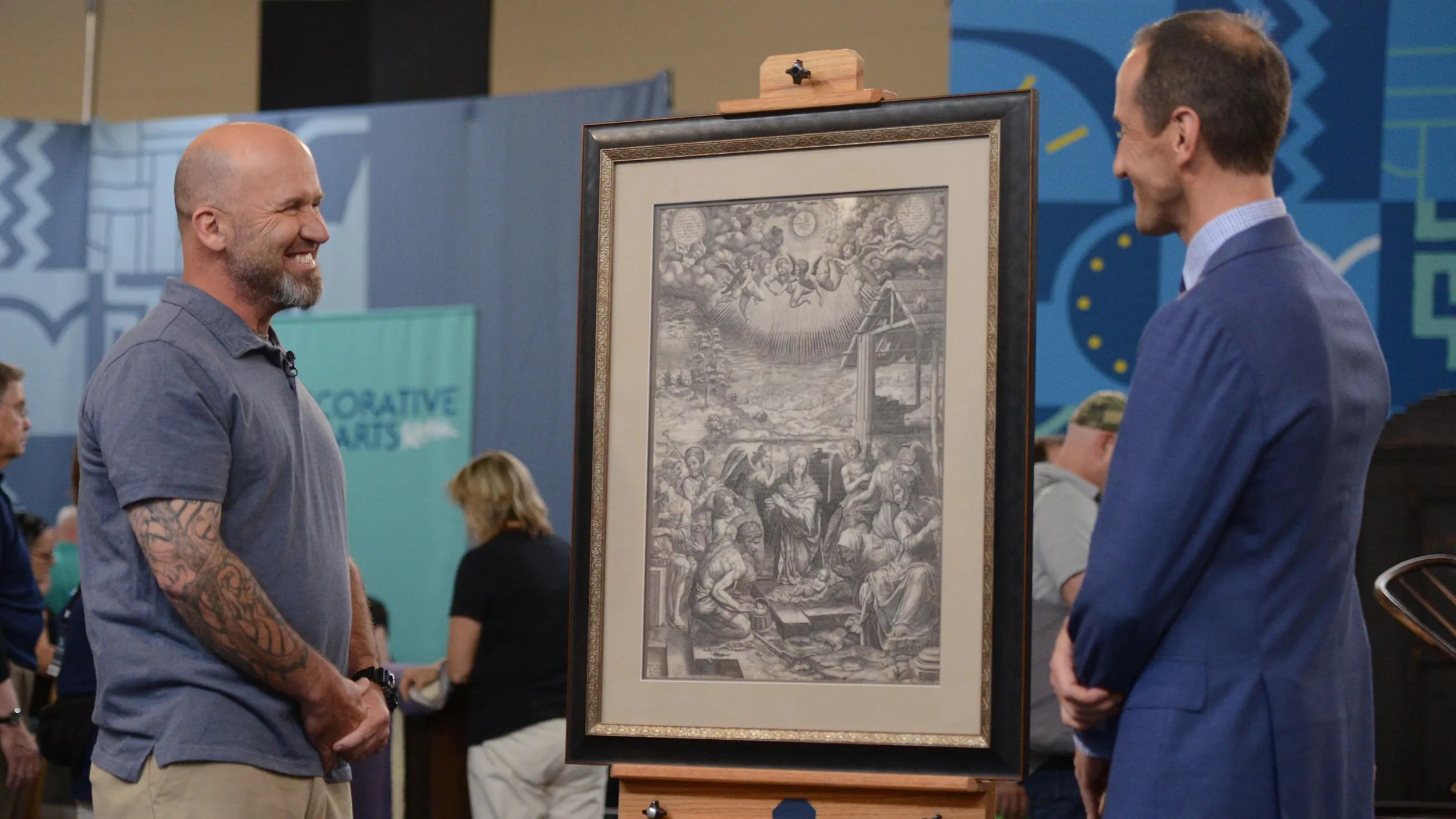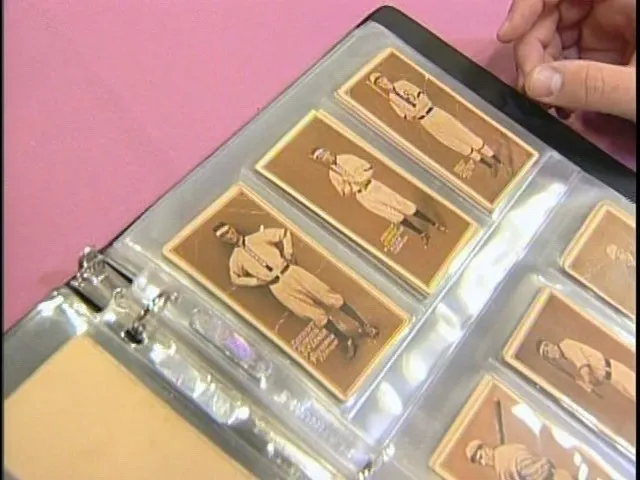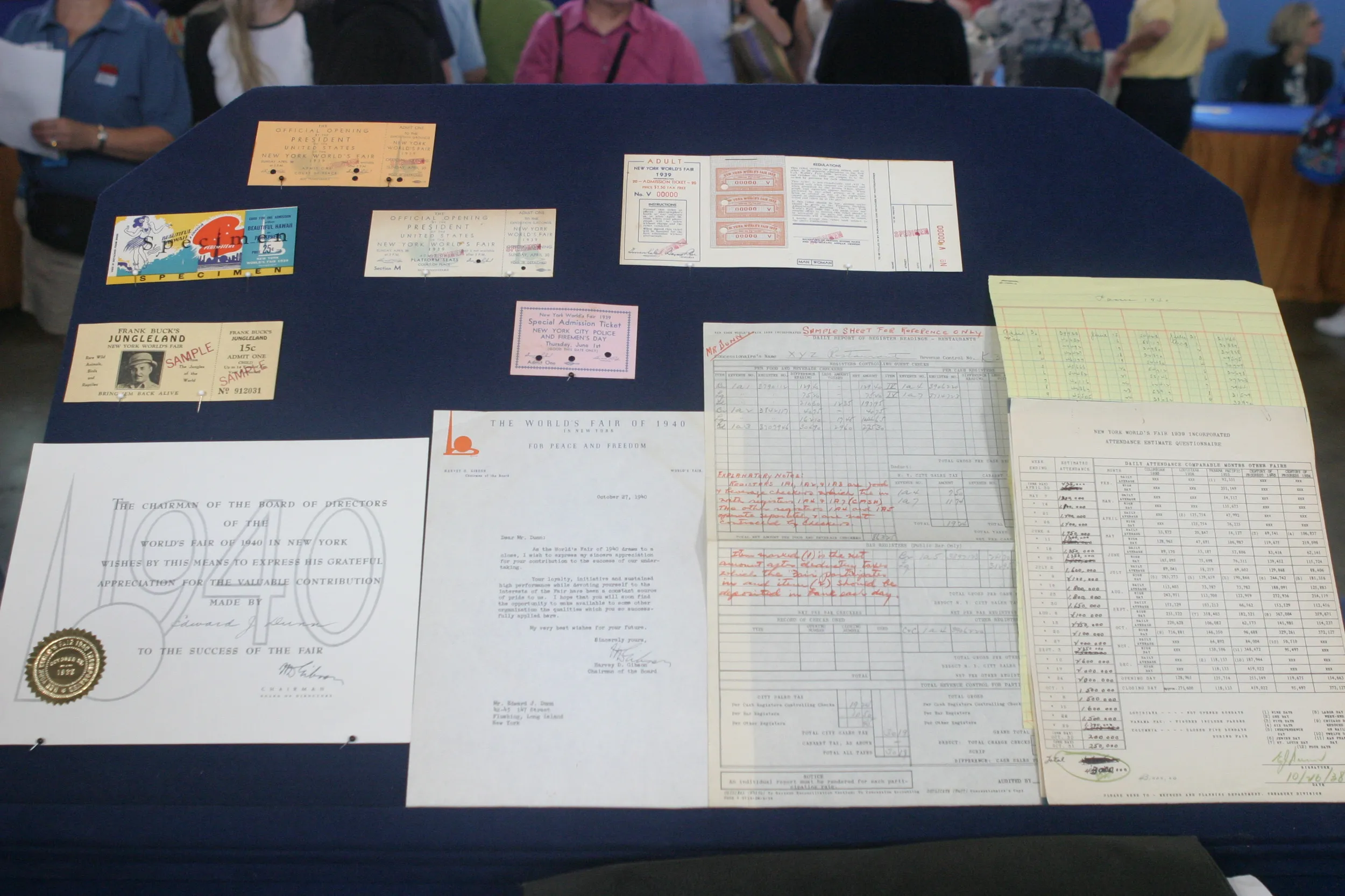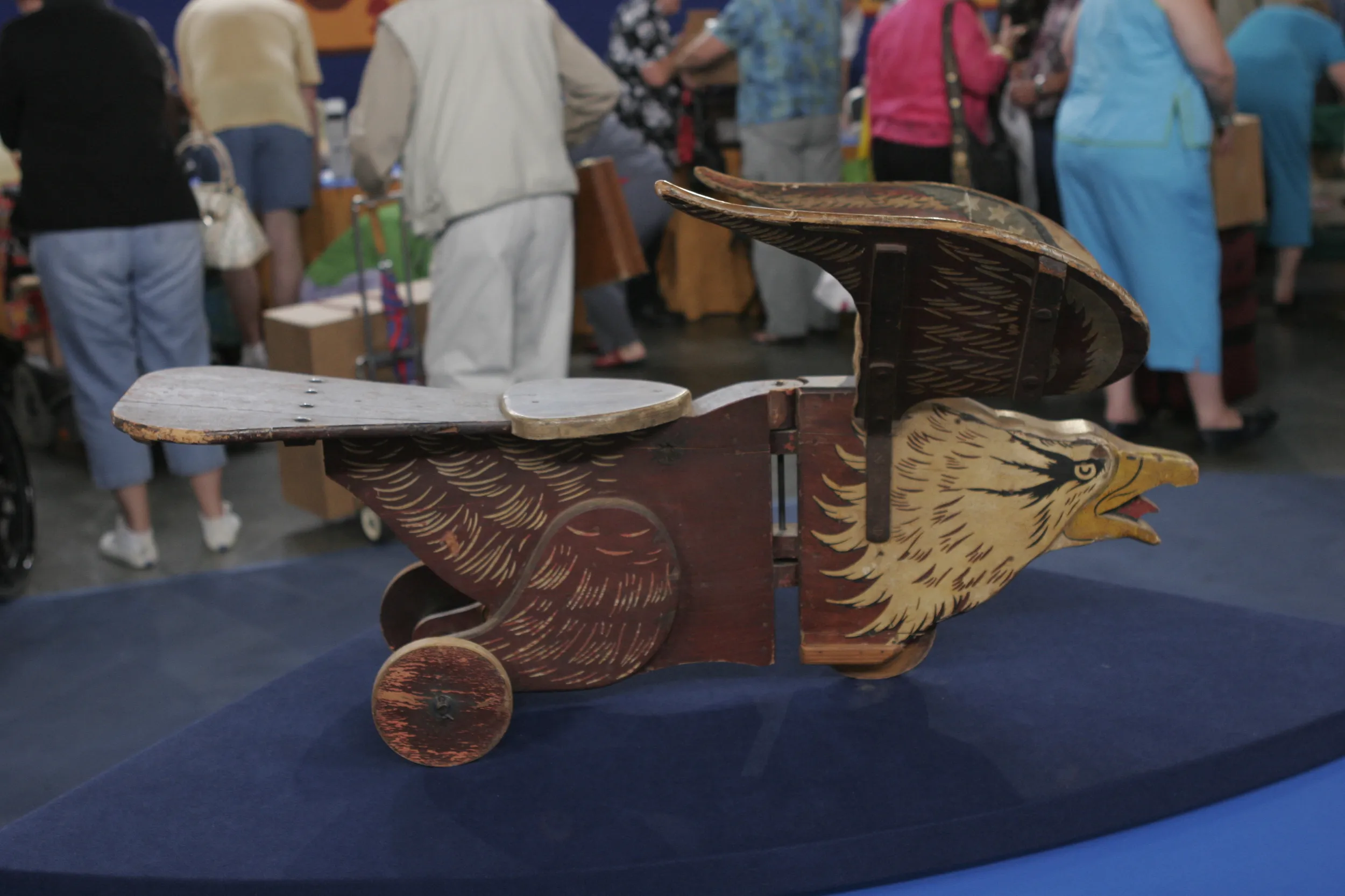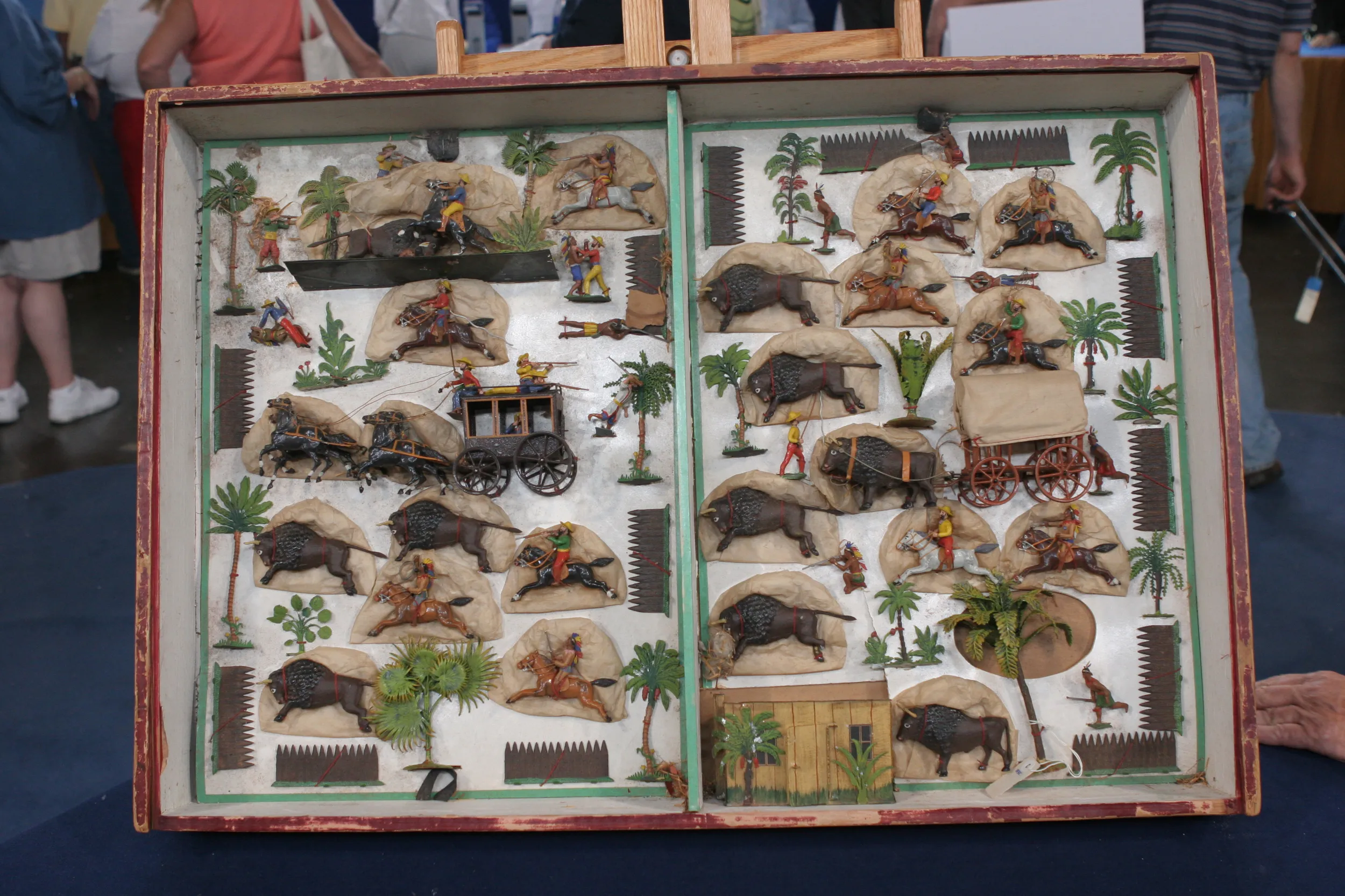GUEST: My parents attended a baseball game in Sendai in 1934. The team came from New York, and these are the players, all of their signatures. And they watched the game with the Japanese. They were in Japan as missionaries. They weren't really baseball fans, but they were American fans in a foreign country, and the big memory that I read in one of their writings was, the Japanese behind them brought a huge jug of sake, which they were going to enjoy. Because the Japanese loved baseball. They broke the jug and sake was all over everybody.
APPRAISER: Wow! And they left in 1939. Why did they leave?
GUEST: Things were happening already around the world-- war things. And because I was an infant, they left. On a steamship and came back to the States.
APPRAISER: Came back. Did they ever go back to Japan?
GUEST: They never went back, but I want to.
APPRAISER: And did they have any particular remembrances of the team themselves, the players?
GUEST: Well, interestingly enough-- whether it was theirs or whether it was the Japanese impression-- Babe Ruth appeared to them to be like a gorilla. (laughing) And that appears in their notes and everything.
APPRAISER: Oh, that's, well, he was a large man.
GUEST: Yes.
APPRAISER: And here are your parents in the stands right here. There's your dad and there's your mom in this photo. And then there's your dad, and there's your mom in that photo.
GUEST: Yes.
APPRAISER: So that's their story in getting their signatures from the baseball players. They must have had a great opportunity to get them at the game.
GUEST: My father had a lot of personality. Right into the pit he went.
APPRAISER: 1934, tensions with the United States were very high. This tour, the baseball teams, all-star teams had gone over ever since 1908. But in 1934, they made a huge push to bring over their best players as sort of seeking peace between the two countries.
GUEST: Right.
APPRAISER: So they brought Babe Ruth, one of the greatest Hall-of-Famers, if not the greatest of all time, who was adored by them. 500,000 people showed up.
GUEST: Right.
APPRAISER: To greet the team, and they're all yelling, "Bonsai, Babe Ruth." Babe Ruth brought over 20 pieces of luggage, including one case just for tobacco. And then you had Lou Gehrig, who's over here. You had Jimmie Foxx, who's here. You had Charlie Gehringer. You had a whole team of all-stars that went over. But the undercurrent, for instance, you have Moe Berg here.
GUEST: Yes.
APPRAISER: Now, Moe Berg was a second- string catcher, essentially. He was not of the same caliber as the rest of this team. But he brought over his camera, and later on it was found out, he was filming Japanese military installations.
GUEST: That I'd heard.
APPRAISER: So he had done some spying. Again, there were all these military undertones. The players had their bags gone through and they were shadowed on the streets. You look at these and they're just signatures on a page, but when you find out the history, they mean so much more. I would probably put an auction estimate on the group of $10,000 to $15,000. And I could think they could sell possibly as high as $15,000 or $20,000, depending on the auction. If you were going to insure them, I would then put $30,000 on them. To protect yourself.
GUESTL Thank you. I had nowhere... I had no idea where to begin.
APPRAISER: So if you're going to sell them, what would you do with the money?
GUEST: Go to Japan. (laughing)

